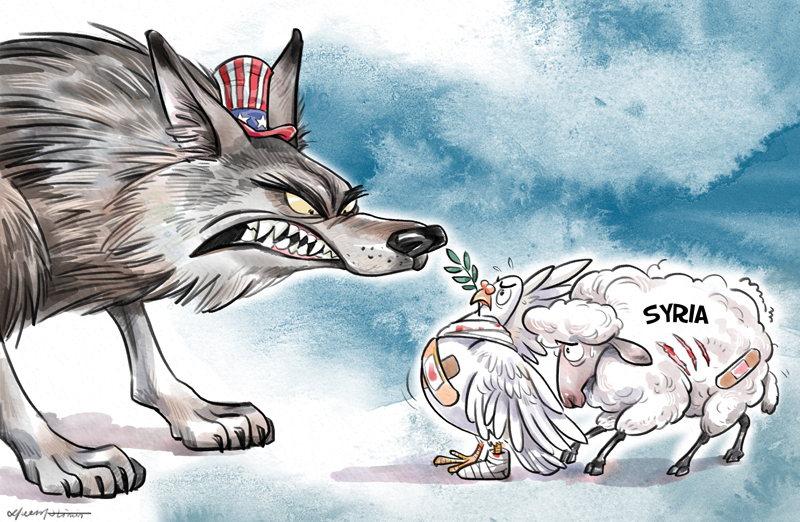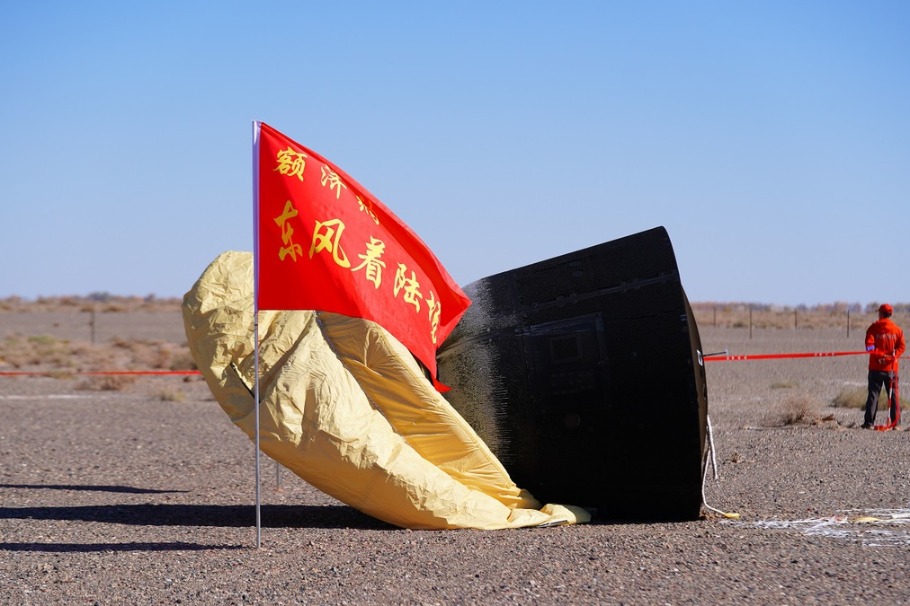Syrians continue to suffer as major world powers bicker


Syria and its people continue to suffer as the West continues to play its power game with Russia. The US, British and French air strikes on three Syrian sites on April 14, claiming they are associated with the Syrian government forces' alleged chemical attack in Douma in eastern Ghouta, was without any justification of international law or authorization of the UN Security Council. The West has done it before, in Iraq and Libya for instance, and may do it again.
In the case of Iraq, the West's claim that Saddam Hussein possessed "weapons of mass destruction" was at best, totally false or at worst, beautifully fabricated. In Libya's case, the West managed to convince Russia and China that its mission was to supply "humanitarian aid" to the people of Libya so the two countries abstained from a Security Council resolution on a "no fly zone".
But Moscow and Beijing were soon shocked to see the West launch a NATO mission to overthrow the Muammar Gadhafi regime.
In the latest attack on Syria, the Western powers were cautious enough not to hit any Russian or Iranian military sites there to avoid a direct retaliation by Moscow. But by carrying the attack in the first place, the West ignored prior warnings by Russia that it would respond in kind if its military sites were attacked.
This signifies a disturbing Western strategic trend which, if allowed to continue, could spark what many fear could be "World War III".
In fact, with US President Donald Trump now insisting on "renegotiating" the Intermediate-Range Nuclear Forces Treaty signed by the US and the Soviet Union in 1987 to eliminate all nuclear and conventional missiles with ranges of 500-1,000 kilometers and 1,000-5,500 km, and Moscow saying it will abide by the treaty as long as Washington continues do the same, fears of a post-Cold War nuclear arms race seem increasingly real, in which a political clash or an accidental targeting error, as Richard Falk, professor emeritus of International Law at Princeton University, put it, could cause a catastrophic humanitarian and geopolitical crisis.
Or, did the three Western powers launch the strikes on Syria to turn the attention of their people from more important and immediate domestic issues? Trump's presidential approval rating is at one of its lowest, he is locked in a difficult trade dispute with China and his popularity among even US allies is very low. Britain is facing problems on many fronts, the foremost being Brexit. And France has been tackling one domestic crisis after another, from terrorist attacks to labor reforms and farmers' subsidies.
That the West carried out the strikes without any evidence that Bashar al-Assad had indeed ordered the so-called chemical attacks, and that too at a time when he seems to be winning the civil war against the rebels, tells another story. Some even claim the rushed attack was, in fact, launched to eliminate any evidence that the rebels or other terrorist outfits, not the Syrian government, was involved in the chemical attack especially because the Organization for the Protection of Chemical Weapons is yet to start its fact-finding mission into the Douma incident.
Given its apparent attempt to prevent the Assad government from eliminating the remaining Islamic terrorists in Syria, the West's tall claims of fighting global terrorism for the global common good ring hollow. Western powers have not learned any lesson from the destruction of Iraq, or their failure in Afghanistan to root out terrorists.
Perhaps they believe they stand to gain more economically and politically if the civil wars continue in the Middle East countries. Call it the politics of "creative destruction", if you will. It's comforting to know therefore that there are still some countries that do not say one thing, and do exactly the opposite.
But as the world continues to play its political and strategic games, more sufferings pile up on the Syrian people.
The author is a senior editor with China Daily.


































